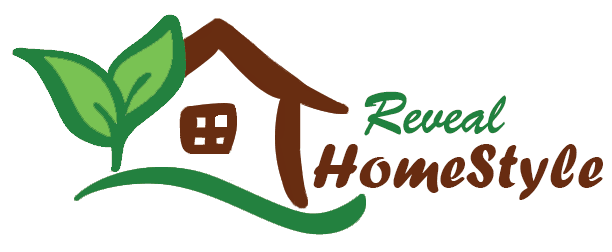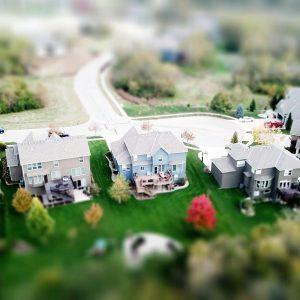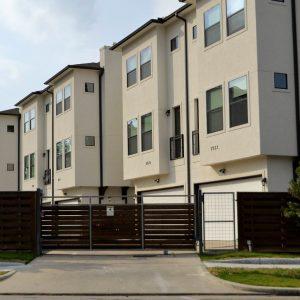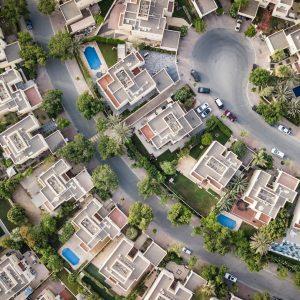Buying a house and selling one is not an easy task. Cash for homes is crucial. There are other important things to do before making that huge step in your life. After getting your house ready for other people, a home inspection must happen before a sale.
What is a home inspection and how does it take place?
A home inspection or check-up is an assessment made by a person who is certified to inspect the house being sold. The inspector will look at the functionality and other potential issues of the house. The inspector then will make a report that will be shown to the person buying the house.
The inspector will scrutinize the structure of the house. They will also check all systems like electrical, plumbing, and heating/cooling systems.
The main objective of a home inspection is to survey and uncover any underlying issues with the house. It is also the last chance for buyers whether they want to buy the house. Inspections happen when the seller has approved the offer, before purchasing the property.
How to get ready for a home inspection
Why is it important to put things for a home assessment? Well, it’s because an inspection report will help your sale go through. If everything in the house is functional, then it will most likely sell.
Here’s a list of what you have to do:
Clean and declutter
Clean and polish everything you think that needs cleaning like kitchen appliances. Clear out your storage rooms, basement, or attic, and get rid of everything you no longer need. Organize and dust off your closets and cabinets for more space.
Test functionality
Check everything functional in the house. Open and close the windows and door to check if they work smoothly and if the locks still work. Turn all the lights on and off to check if they still work with no issues. Flush your toilets and turn on the faucets and showers. Run the ceiling fans, and check if ventilation fans are still functioning well.
Security precautions
Make sure you change all batteries on smoke detectors and have fire extinguishers ready. You should also exterminate any bugs and pests that may be infesting the house.
Repair
Surely some things in the house have worn down, make sure you replace and repair all these things. These include replacing old light bulbs and repairing some water damage. You may also want to remove clogs in drainages and re-caulk your bathrooms. Repairing cracked windows and damaged roofing is also very important.
Exterior improvements
The exterior of your house is just as important as the interior; make sure you clean out the gutters. You should also sweep any dirt, dust, and debris on the roof while you’re at it.
Main things a home inspector focuses on
Home inspectors have hundreds to thousands of things on their checklist. But here is a list of the typical checklist home inspectors have:
Structure
Inspectors check the house’s structure to see if it has a strong foundation and if it is straight. This is more important for people looking into an older house.
Most foundation problems are caused by water. Water is especially problematic for foundations (all types) built on top of expansive soil. Also, poor drainage can lead to hydrostatic build-up in the soil under the foundation. A wet crawl space can negatively affect a building’s structural integrity. It’s significant for homeowners to understand how water gets into a crawl space and how to keep a crawl space dry.
Grounds
This is the first thing home inspectors check. They will scrutinize the land if there will be issues such as puddles and downspouts.
Exterior
The inspector will be looking at damaged masonry typically near the basement. They will also check cracks and decay around the attic. They will also look for any blistered and flaked pain.
Roofing
A home inspector will be looking for defects with the roof that may cause leaks in the crawl spaces.
Doors and windows
Doors and windows must be in great condition. The inspector will check if there are any damages to the glass and if there are any decays on the wood of the doors.
Bathroom
The purpose of this is to check if the toilets are still able to flush. It is also to check if the faucets and shower still work and to make sure there is no clogged drainage.
Plumbing
Inspectors will check this to see if there are any problems with the pipes, drains, and water-related issues.
Kitchen
This is to make sure there are no leaks under the sink, no faulty wiring that may cause fires. It is also to check the fans above the stove are directed outside.
Electrical system
This part is to check the visible wirings and electrical panels. This part also includes checking outlets, light switches, and HVAC systems.
What should you ask during a home inspection?
During a home inspection whenever he finds an issue ask, “What does it mean?” You will want to know the state of that problem, how severe it is, and how much it will cost to repair. Some will sound like they are not even a problem, so you should ask how they are an issue for the house.
If you find things that look off during the inspection, ask about them. It can be things found like water spots like is it an issue with a water pipe or is it a leak from the rain? Try to know the situation with your property as much as you can.
The last is very important to ask, “What is your biggest concern with the property?” Asking this will help you determine the biggest issues to fix for your house. The inspector should give you in detail the major flaws of your home and what to do about it.
Meeting your home inspector at the property
It’s important to meet the home inspector at your property to find problems uncovered. Some of the issues found by the inspector might not be on the final report. Being there with the inspector will give you the chance to ask about the condition of your home.
You can ask for that person’s opinion on the problem found and ways to fix it. You will want to know the best way to fix those problems at the smallest cost possible. Some of the fixes are not needed but for major problems that will affect their value, you need to repair them.
Share your report with your real estate agent
Sharing your report with your real estate agent will determine your starting price. The bigger the price you can start at the better because the buyer will renegotiate. They start renegotiating after they get the final report from their home inspector.
But if you took the necessary precautions and fix as many of the problems they can’t lower the price much. Their bargaining will be small issues found that will be cheap to fix. If they try to bargain for too low of a price, then your real estate agent can find a better buyer.
Your home inspector should inspect every nook and cranny
This is very important because if there are major flaws in your home it will hurt the selling price. For this, you have to research the home inspector you want to hire. Some states need a license for a home inspector so you need to get one from a trusted source.
When you receive the final report from your inspector make sure everything’s included. Make sure that every part of the house is on the list and all dilemmas found are in it. Including all the issues found when you were there making sure nothing, it is all included. Your real estate agent will need all that information.
How much does a mold inspection cost on a home?
A home inspector will cost around $300-$500 on average but they can’t inspect everything. As state before there are parts of the house that need specialists. For example, mold, since mold is only found in damp and dark places the inspector can miss it.
For a mold inspection it will cost an average of $450-$800, yes it sounds expensive to hire both. But mold can be a serious issue especially if the buyers have allergies. Mold can spread everywhere fast if it’s in the walls and it will hurt the value of the house. You should remove it as fast as possible.
Conclusion
Home inspections are a crucial part of buying or selling a house. If you are selling your home, make sure to do the necessary steps to make sure you can sell your house.
Home inspections are not only there to check for problems inside the house. They are also there to make sure the house is safe for everyone who is going to live in it.





